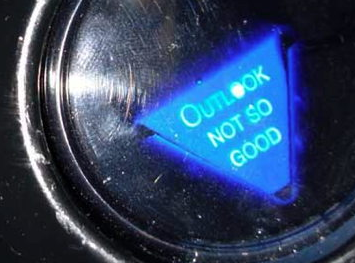Amazon Past Prime: Why Major Retailers & Publishers are Going it Alone

Is Amazon past prime? I really can’t speak for all business fads, just ones American. Americans do love…business. What do we love more than business? Duh. A great business fad.
Hey, we DID invent the forty-hour work week just so we could ignore it *hair flip*.
As I mentioned in my December post Penguin SOLD: Publishing, Change & Lady Chatterley’s Lover, Oh MY! everything fluctuates. Markets don’t get a pass. The world changes, technology shifts, and business that want to survive are wise to remember this.
Businesses exist to serve the customer…which is why Blockbuster is no longer around #ByeFelicia.
Which brings me to an interesting point. In the Amazon paradigm, who exactly is the customer? Did Bezos, in his frenzy to build an empire, forget that he actually had multiple customer vectors? Or, did he believe he could build something ‘too big to fail’?
Let’s talk about this, shall we?
The Amazon Paradigm

If you want the 411 on exactly HOW Bezos built a company that very literally changed the world, please feel free to go check out this post. Because, in the beginning, Amazon really didn’t, per se, sell anything,
Initially, Bezos sought to master gathering, sorting, collating, then being able to effectively utilize information. If anyone understood the old axiom, Knowledge is power? It would be Jeff.
See, Bezos was around for Web 1.0 and understood the longterm goal to create…well, what we have now. HE wanted to be Web 2.0’s Baby Daddy…and well, he was, er is.
Thanks, Jeff. LOVE my socks.
In the early aughts, Bezos knew where the trends were heading. That Big Box stores were going to become obsolete, which was why Amazon dedicated every resource into not simply dominating the online shopping paradigm, but essentially creating it.
Amazon did what Web 1.0 failed to do. They made buying goods and services on-line so seamless, easy, safe, and affordable that they moved this buying behavior from nerd-early-adopter over to the mainstream.
Not only that, but SO many consumers began shopping online, that it was a) business suicide not to have a virtual store but also ironically b) virtual suicide for retailers to try and compete and open their OWN on-line store.
Just ask Borders. Wait, you can’t.
Amazon literally changed the commercial landscape in such a way that made pretty much every form of business with a physical product dependent on Amazon (and where Amazon got a share of their profits).
Sell t-shirts, yarn, vitamins, dog food, plumbing supplies, toupees, electronics, hair gel, camping equipment?
Are you a BIG SIX PUBLISHER? A Big FIVE? Spiffy FOUR?
Well, we’ll need a small piece of those book sales if you want to stick around.
Big Box, Big Vacuum

We’re now in 2020 and business is changing yet again and guess what, my lovelies? While writing is first and foremost an art and a craft, it is also a business.
It’s also our job to understand the business of our business…which is why I write these lovely tidbits for y’all and try to make them fun enough so you don’t want to stick your head in a blender.
It’s a good thing for authors—TRUST ME—that the Big Box bookstores went away. I wore a red dress to Border’s funeral and brought it out again for Barnes & Noble’s. The Big Box bookstore killed the small indie stores and almost obliterated the author middle class.
***If you long to know why the good old days really weren’t good at all and WHY I am a big fat meanie about B&N? Check out The Hard Truth About Publishing—What Writers & Readers NEED to Know.
All this said, Amazon did a superlative job. Mission accomplished. They restructured modern business, remolded consumer behavior, and even created this leviathan industry to support a logistical operation unlike anything witnessed in human history.
Big Trouble in Little Made in China

According to the January 2, 2020 Forbes article Is This The Beginning Of Amazon’s Meltdown?...
Last November, the world’s largest sporting goods company, Nike, announced it was leaving Amazon. It would yank all its products from Amazon.com and sell them exclusively on its online store.
Stephen McBride, The editor of RiskHedge Report
Since then, other major and respected retailers have also defected including, but not limited to Rolex, Louis Vuitton, Ralph Lauren, Vans, Patagonia, North Face and even Ikea. They’ve opted to selling their own wares on their own sites instead of partnering with Amazon.
Why?
They no longer HAVE to.
Remember, when I started this post I mentioned that everything has cycles, including business. Amazon paved the way for e-commerce, but it was absurd to believe they’d ever keep a lock on it. The entire point of entrepreneurship is to look at what isn’t being offered and then fill that vacuum.
These days, there are companies that—with the major advances in technology—can make businesses competitive without having to bend the knee to Amazon.
Shopify, Wix, Squarespace allow businesses of all sizes to create a small on-line store (even an author who wants to sell books and merch 



